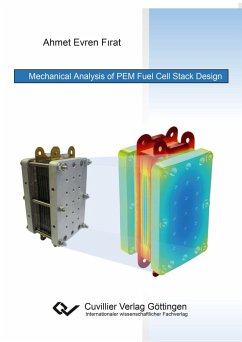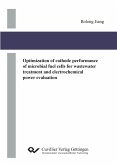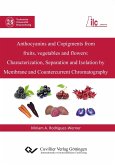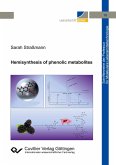Polymer electrolyte membrane (PEM) fuel cell stack was analyzed from a mechanical point of view with the help of measurements and simulations in this study. The deflection of the fuel cell stack was measured with the help of the experimental set-up under operating conditions. The effects of cell operating parameters and cyclic conditions on the mechanical properties of the fuel cell stack were investigated. In order to extend the mechanical analysis of the fuel cells, two computational models were established containing the geometrical features in detail. A large-scale fuel cell stack model was built for the thermomechanical analysis. The second model was built on a cross-section geometry for the electrochemical analysis including fluid dynamics. The internal stress distribution and buckling of fuel cell stack were examined. The influence of the mechanical compression on the cell performance and squeezing of the gas diffusion layers are investigated. A design procedure is developed for fuel cell stack regarding the durability and performance from a mechanical point of view.







